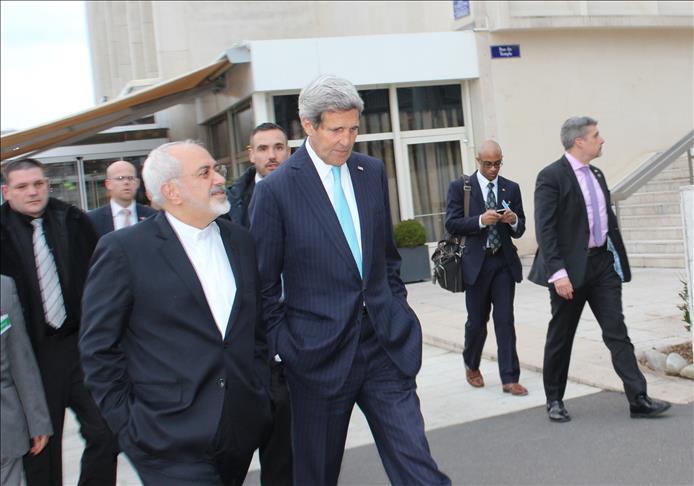
By Betul Yuruk
GENEVA
As nuclear talks enter a crucial stage, a nuclear deal between Iran and the P5+1 group could pave the way for possible cooperation in the fight against the Islamic State of Iraq and the Levant, or Daesh, Iran's former nuclear negotiator has said.
Speaking to The Anadolu Agency ahead of the resumption of negotiations on March 15 between Iran and the five permanent members of the UN Security Council -- the U.S., UK, China, France and Russia plus Germany -- Seyed Hossein Mousavian said 18-months of talks with Tehran over its nuclear program had yielded results.
He said: "The chance to reach a final nuclear deal is high. Since September 2013, the world powers and Iran have made unprecedented progress.
"A deal would decrease the tension between Tehran and Washington."
"In the absence of a nuclear deal, it would not be possible to have negotiations on broader issues. But a nuclear deal would pave the way for possible cooperation on broader issues like ISIS," Mousavian added, using an abbreviation for the Islamic State of Iraq and the Levant, or Daesh, the Arabic acronym of the militant group, which announced a "caliphate" across Iraq and Syria.
A U.S.-led International coalition established to eradicate Daesh has been striking the its positions since mid-September 2014 in Iraq.
'Comprehensive agreement'
Mousavian's comments came after U.S. Secretary of State John Kerry and his Iranian counterpart Mohammad Javad Zarif, met for three days in the Swiss town of Montreux earlier this week in an effort to meet a March 31 deadline for coming up with a political framework agreement.
However, Mousavian added: "They have reached to a common understanding on the principles of a comprehensive agreement.
"However there are still some gaps and therefore no one can guarantee a final deal."
The P5+1 group have claimed Iran is developing nuclear weapons and want its nuclear program curbed in return for the lifting of sanctions, while Tehran says its nuclear program is for peaceful civilian purposes.
'Final deal'
The deal sought by the six-nation group would have Iran accept limits on its uranium enrichment capacity and allow International Atomic Energy Agency inspections without interference of any kind.
In return, Iran would see a lifting of the international trade and financial sanctions that have held back its economic growth.
When asked what would happen if the talks fail, Mousavian said: "I believe they would find a way to continue the talks until they strike a final deal.
"It is extremely difficult for both parties to go backward."
Anadolu Agency website contains only a portion of the news stories offered to subscribers in the AA News Broadcasting System (HAS), and in summarized form. Please contact us for subscription options.







